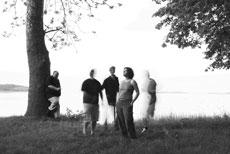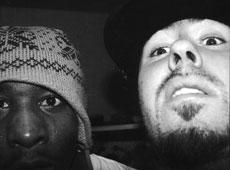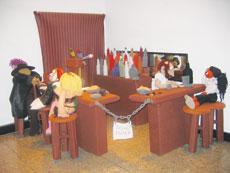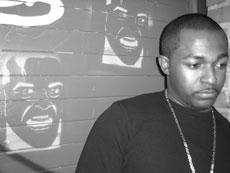When Love Hurts
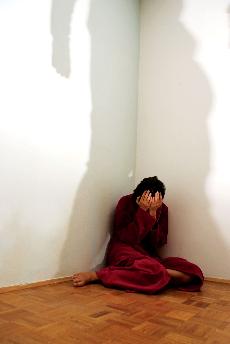
April 18, 2006
No one expects domestic violence to happen to them.
This is not a cliche. The very nature of domestic violence implies that it is perpetrated by a family member or spouse who is close to you and is likely some one you love very much. In this context, it is understandable that one would assume that a husband or boyfriend that they love, and who loves them in return, would never intentionally harm them.
But statistics can paint a drastically different picture. According to a 1998 Commonwealth Fund study, nearly one-third of American woman have reported being physically or sexually abused by a husband or boyfriend during some point in their lives.
This is an unacceptable figure and sadly, it touches on only the more obvious aspects of domestic violence. Static are helpful in understanding the issue, but the reality is that vast majority of domestic abuse cases are underreported for a number of reasons, including fear, shame, guilt, denial, or simply not possessing the knowledge of what domestic violence is. So instead, domestic violence largely remains a “silent issue.”
The question becomes then how do you confront an issue when the individuals most directly affected are also the most reluctant to acknowledge it?
Sheerin Hosseini, a student in the Beacon Leadership Program who are hosting a “Domestic Violence Awareness Week”, April 18-20, says that raising awareness and getting information out to the public is one of the most effective tools available. “We can educate the public, we can educate are student body, we can educate those around us of what to look for and how to help others,” says Sheerin. “With these sensitive issues, we may not be able to find out who needs help or how to help them directly, but for the people who come to these events maybe they’ll lean more and might be able to help others indirectly.”
That’s why Sheerin helped to plan the “Domestic Violence Awareness Week,” a three day long event that aims at getting out information on the issues that surround domestic violence. The event will include tabling, films, guest speakers, discussions and other resources available to UMass Boston students.
“Our goal is to raise awareness and to dispel some of the myths of domestic violence. For example, are women the only ones being abused, or are men the only ones doing the abusing?” Sheerin explains. “Our events are trying to dispel those sorts of things.”
Many college age students may feel that domestic violence isn’t an issue that affects them. Maybe they’re not married, or maybe the abuse has never been physical, or maybe they’ve assumed that a level of obedience is the responsibility of a woman.
Dana Clark, who is a coordinator for the Woman’s Center, disagrees. “Those at highest risk are 16-24 year old women. This is the age when woman are developing their sexual identities, so this is when they are most vulnerable,” Dana says.
For UMass Boston’s Woman’s Center, the issue of domestic abuse among college age women has always been a central one. They have in previous years sponsored “Take Back the Night,” which this year is being organized by the PsychologyDepartment, University Health Services Counseling Center, Student Senate and the STARs grant, on April 20th. “Take Back The Night” will focus on raising awareness on both domestic violence and sexual violence including rape, sexual assault, and child sexual abuse.
Dana emphasizes that sexual abuse is not something that is limited to dark alley ways, it can happen in your own bed room as well. “The majority of sexual assault is between couples,” she says. “It’s under reported because people think it isn’t rape because it’s their husband or because they had sex with the person before.”
Since domestic abuse isn’t limited to just married couples, this means that it isn’t limited to just heterosexual couples either, as Brandon Gorham, the coordinator for the Queer Student Center, explains.
“One of the big things that’s been a problem within the LGBT community is that with the stress on gay marriage, people have really been pushing to portrait gay marriage as perfect and so a lot of people who are experiencing LGBT violence really feel that they are encouraged to not speak because they don’t want to risk the image being damaged,” he said.
Brandon also noted that studies have shown that there is no statistical difference in the instance of domestic violence based on a couple’s sexuality. So it really is an issue that affects us all.
Both the Woman’s Center and the Queer Student Center have an open door policy for people wishing to do talk about or get more information on domestic abuse. UMass Boston’s Health Services and the Counseling Center are also open to people wanting to learn more about domestic violence. “Domestic Violence Awareness Week” is from April 18-20 and you can [email protected] for more details. “Take Back the Night” is on April 20 and you can contact [email protected] for additional info.
Just knowing that these domestic abuse resources are available is a vital part of the educational mission of people like Sheerin Hosseini. “Knowing where to go, even if you don’t immediately do it, just knowing that there’s help out there.”





















































